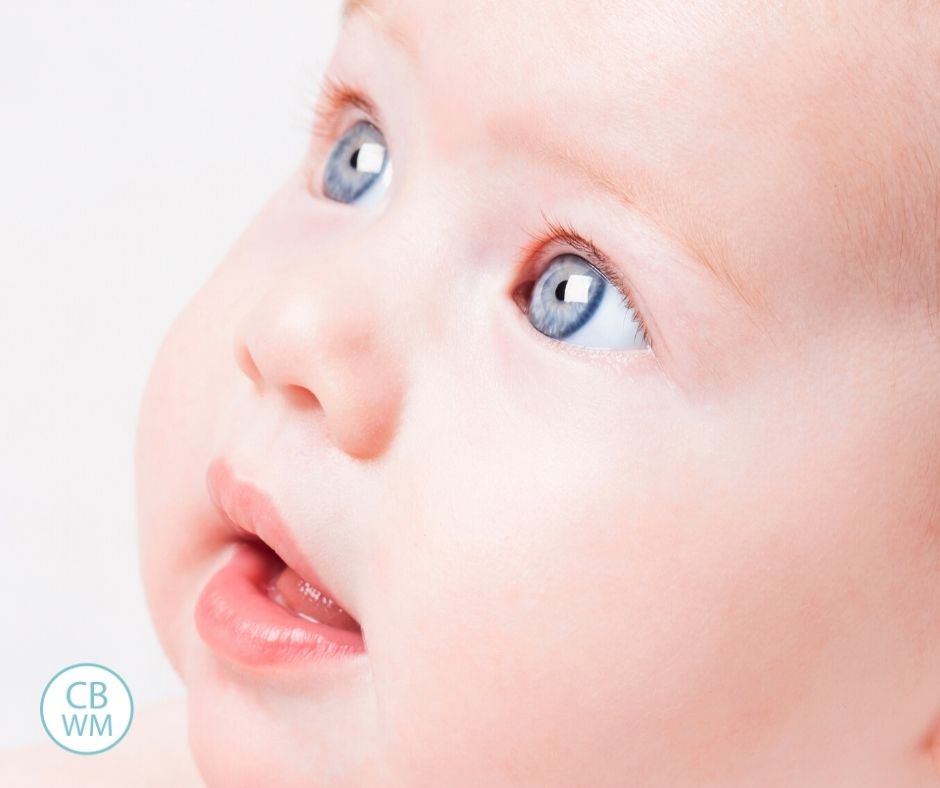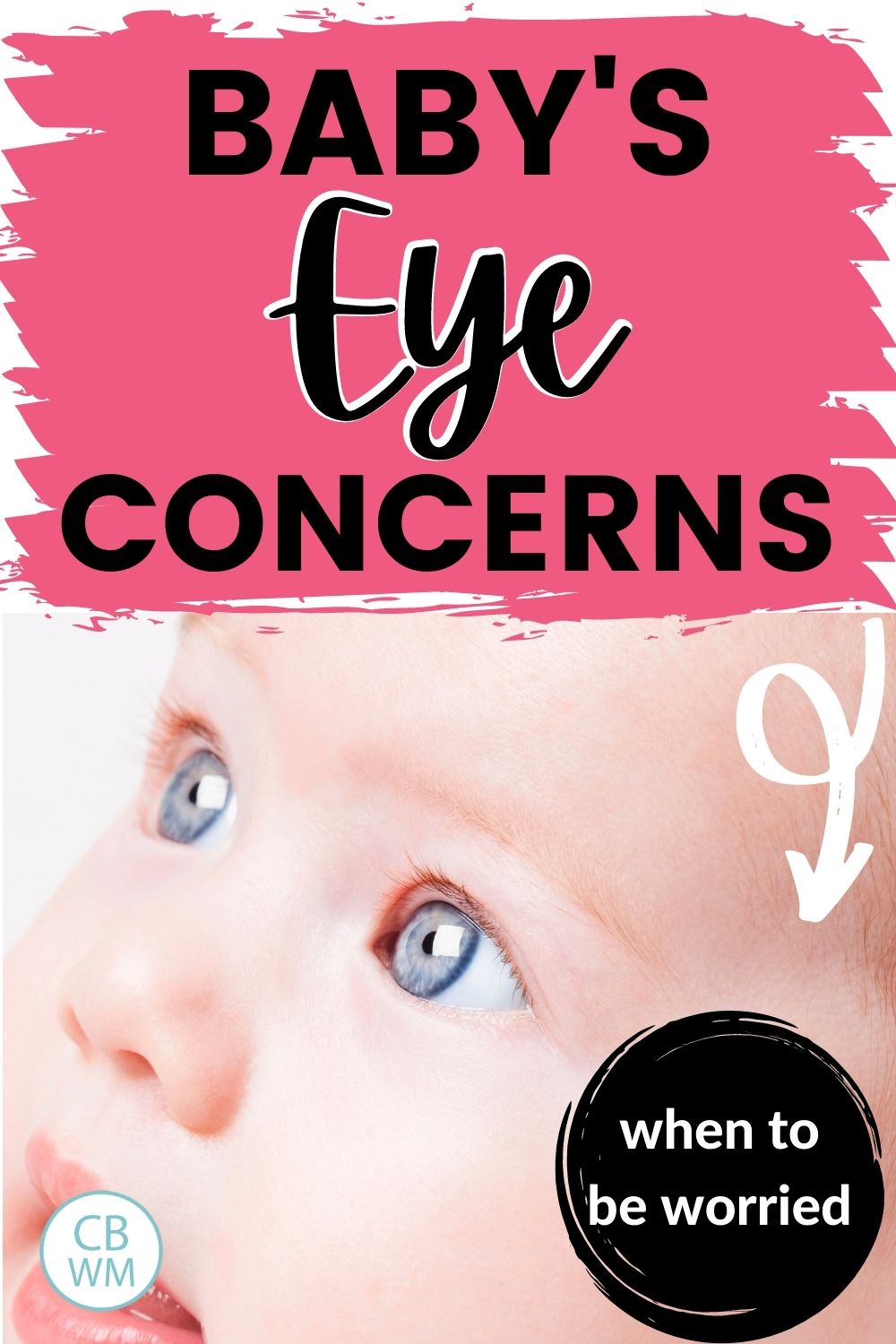There are a lot of things to pay attention to when it comes to baby’s eyes. Learn what to watch for and when to be worried.

You know how you are always analyzing your baby and wondering if what you are seeing is normal or not? (I know I am not the only one!) Baby Body Signs
Post Contents
Eye Color
Eye color changes and is usually the color it will be by 3-6 months. 25% of children will continue to lighten or darken until age 6. 10-10% will continue even until adulthood!
Some people have different colored eyes. This is usually not a problem, but in rare cases can be a sign of something more serious, so be sure to bring it to the attention of your doctor.
Red Eye Whites
Red eye whites can be caused by trauma during birth and will go away within a few days. Red eyes can also happen because of allergies or pink eye.
Yellow Eye Whites
This is usually a sign of jaundice.
“White Eye” in Photos
This is not the small white dots that sometimes appear in both eyes in photos. If your baby has one eye that is white in photos, it can be a sign of a serious problem.
The authors even suggest you every so often take pictures of your children every so often without the red-eye reduction feature on your camera so that you will know if there is a potential problem to bring up to your doctor.
“Yellow Eye” in Photos
Yellow eye is also something to bring to the attention of your doctor.
Mismatched Pupils
For some people, this is normal. But if mismatched pupils happen after a head or eye injury, is accompanied by sickness, is accompanied by vision problems, or is accompanied by pain, see your doctor.
Lump or Bump
This can be due to a stye or chalazion. Neither is usually serious, but both should be treated to prevent more serious infections to occur. Do not pop these.
Black Eyes
If your baby looks like she has dark circles under her eyes, it is likely due to allergies or nasal problems, not sleep deprivation.
Bulging Eyes
Bulging eyes should be looked at. It can be inherited or a sign of a serious problem, so have it looked at.
Tears
An interesting point is that most babies don’t shed emotional tears until 2-4 months old.
Eye Contact
“It takes most babies 8 to 12 weeks before they can focus clearly enough to make direct eye contact” (page 75).
Drifting, Darting, Crossed Eyes, etc.
If your baby does any of these things, bring it to the attention of your doctor. If it is not a constant thing, try getting it on video. It seems children don’t do the things we take them to the doctor for while at the doctor, so videos help 🙂
Eye Protection
Baby’s eyes are very sensitive. Because of this, you want to protect the eyes when out in the sun with hats and/or glasses.
Call Doctor IMMEDIATELY if suddenly:
- change in pupil size
- drooping eyelid
- bulging eye
- bleeding eye
- photo sensitivity
Related Posts
- Baby Hair and Scalp Concerns
- Babywise and Colic
- When to start dentist check-ups
- Surgery and Children
- Tips for Myopia and Digital Eye Strain in Children
- Tips from a Mom Pharmacist
- Wisdom Teeth Removal: How to Prep and Recovery Tips

